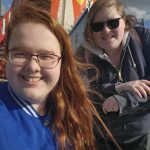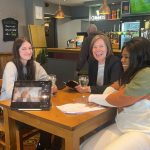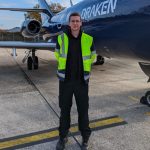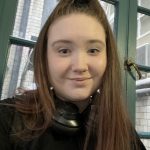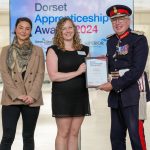 Produced by Guest blogger
Produced by Guest blogger
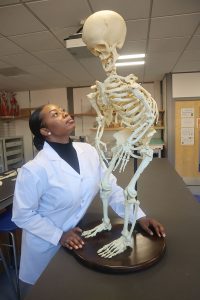 Tumisang Mbedzi came to BU to study MSc Forensic Anthropology and Archaeology (Osteology pathway)* before becoming a Primary Investigator. In her guest blog she talks about her experiences of studying here at BU and her plans for the future.
Tumisang Mbedzi came to BU to study MSc Forensic Anthropology and Archaeology (Osteology pathway)* before becoming a Primary Investigator. In her guest blog she talks about her experiences of studying here at BU and her plans for the future.
1. Tell us a bit about yourself and your research topic
My name is Tumisang Mbedzi. I currently work as a Primary Investigator conducting research on ‘Disaster Victim Identification and Migration – The Value of Using Scarification and Tribal Markings as Secondary Identifiers in Mass Fatality Incidents and Determining Source of Origin. I am also a Disaster Victim Identification (DVI) team member for Blake Emergency Services, and the founder of Behind The Scenes – an African based schools project aimed at educating and raising awareness about the role of forensic science in society, particularly human identification.
2. What lead you to choosing to study at BU?
BU is well known for its distinguished reputation in the Forensics field, which led me to pursue my MSc in Forensic Anthropology and Archaeology (Osteology pathway). Additionally, the course offered the best modules for acquiring skills for my chosen career path in forensic anthropology. A mass grave simulation exercise and intensive hands-on lab sessions were included in this course.
3. Is there anything in particular that you’ve enjoyed about studying here?
The best part about studying at BU came from my chosen degree. It turned out to be everything I anticipated and more. The lab sessions were very engaging, and the mass grave simulation exercise gave me the chance to put my archaeological and osteological skills to the test. In addition, I gained a lot of insight from forensic professionals that were invited as guest lecturers.
4. What about any challenges that you’ve come across?
As most lectures were online, I made the decision to stay at home. But eventually we were given the go-ahead to attend lab sessions twice a week in the last semester. Finding short-term accommodation for a period shorter than half a year was difficult. As a result, I commuted to BU, which took 2.5hours each way (5hours in total). I adapted to it eventually, and must admit it was worthwhile. I was determined to attend all of the practical sessions that I had been anticipating for the entire year.
5. How have you found student life in Bournemouth?
Again, the pandemic made it more difficult to be social and attend events due to restrictions. However, I formed great friendships with my course peers and occasionally grabbed coffee after lab sessions, went to the beach to relax, and participated in a lot of zoom call study sessions and resource sharing.
6. Have you had any thoughts about future careers?
I am enjoying being a Primary investigator and advancing my research, which I am very passionate about. I have received research grants for it. During the last few months of my degree studies, I was fortunate to have humanitarian organisations express interest in my research for collaboration. It has been an incredible experience because it’s provided me with opportunities to gain work experience, such as participating in human identification in forensic establishments. I have also been invited to speak at conferences in the United States and Rwanda to share my research. I am looking forward to more work opportunities as I advance my career, and also considering returning to BU to pursue my PhD. A year and a half after graduating, I continue to receive invaluable support and advice from my professors as I navigate the professional world.
7. Have you got any advice for anyone thinking about coming to study at BU?
“Inclusive, engrossing, and fun.” These are the three words that best describe my time at Bournemouth University. Despite the difficulties, I had the best academic year. My professors were extremely supportive and enthusiastic. I finished the year as a well-rounded individual with a wide range of skills and knowledge. I have been able to apply myself with confidence in what I do every day. Finally, your professors are on your side. Create strong working relationships because this will transform your academic experience!
*Although we don’t offer this degree now, you may be interested in MSc Bioarchaeology.
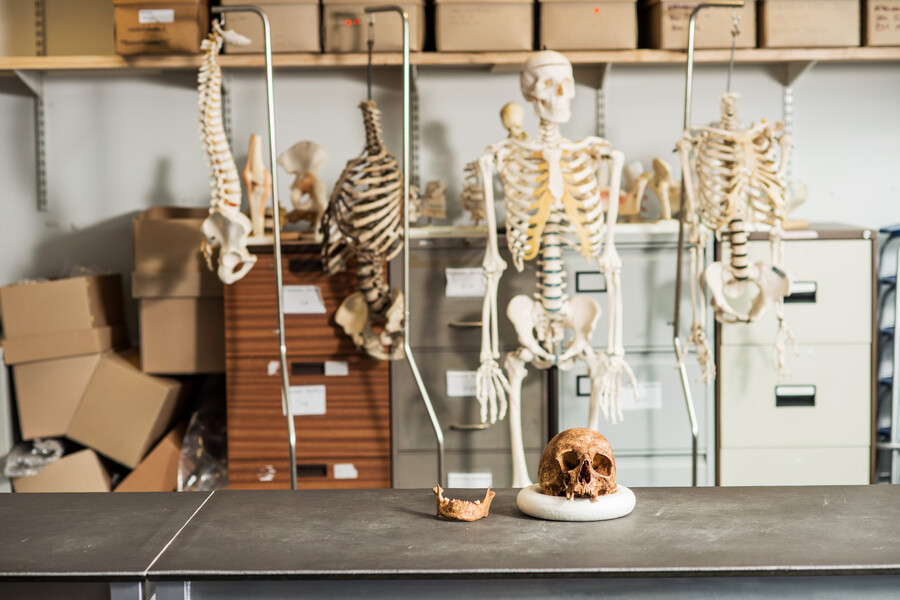
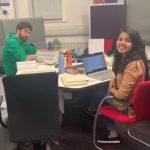 Why postgraduate study was such a great option for me
Why postgraduate study was such a great option for me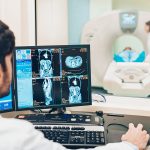 Coming to BU as an international student
Coming to BU as an international student


